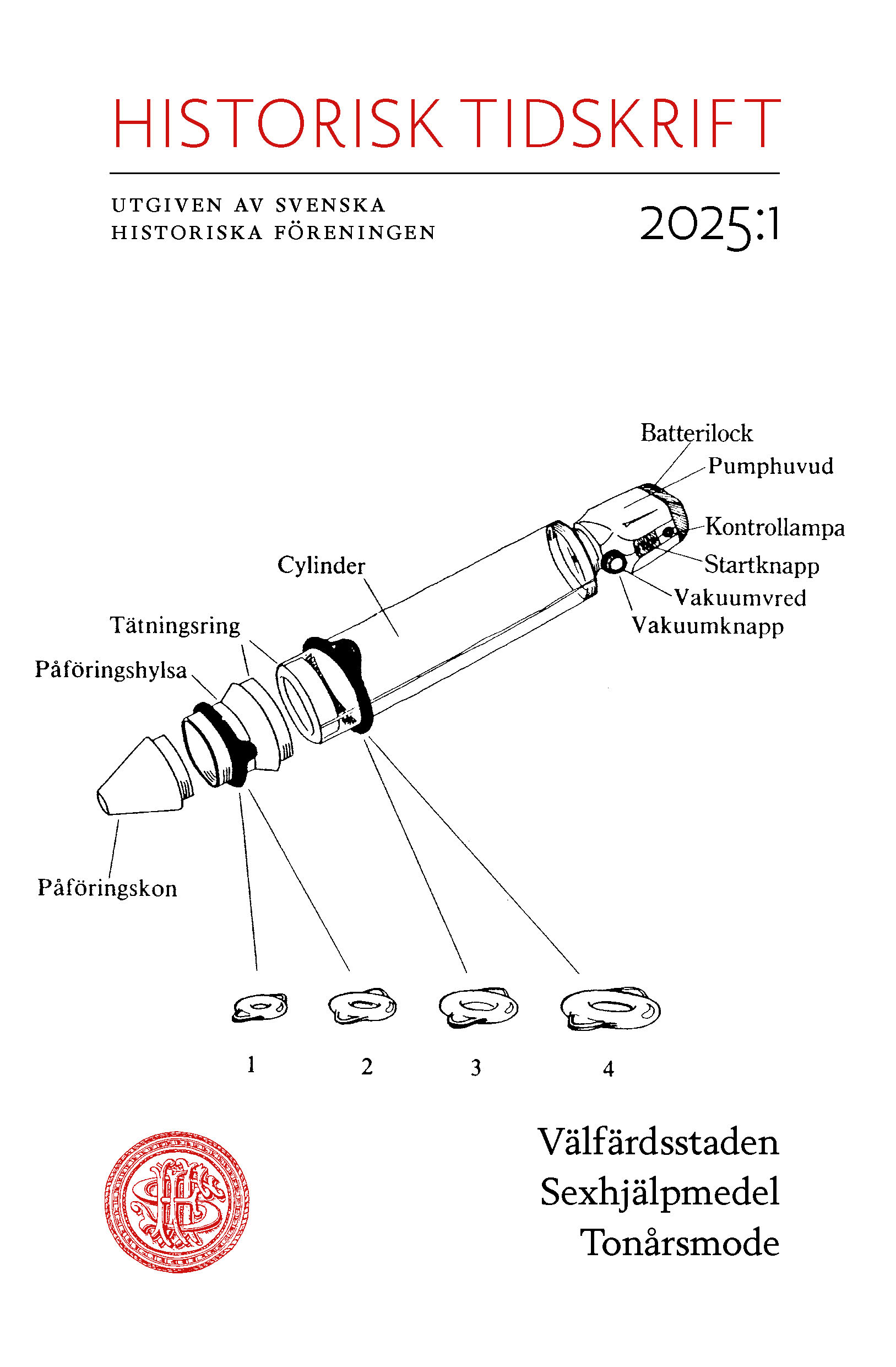Abstract
An erection Made in Sweden: Technical aids and the struggle for corporeality in an expert-led impotence discourse, 1978–1996
There were significant ideational changes in the Swedish expert-led discourse about the diagnosis and treatment of impotence between the late 1970s and the mid-1990s. While earlier research in an Anglophone contexts claims the 1980s saw an important paradigm shift from psychological explanations of impotence to physiological, other research has claimed this to not have been the case in Sweden. Instead, this Swedish research has emphasised the introduction of Viagra in 1998 as the reason a biologically reductionist perspective became influential. Before then, there was a complex, integrative take on impotence among Swedish experts, where both physical and mental factors were of comparable importance.
However, the literature is silent on why and how this integrative understanding arose in Sweden. By taking a longer view and incorporating a broader empirical basis, I suggest the integrated understanding of impotence’s causes was a response to tendencies towards what I call somatification. Erection aids that predated Viagra contributed to the process, most notably the popularisation of injection therapy in the mid-1980s on, but also a Swedish-made penis pump marketed by the Swedish Association for Sexuality Education (RFSU) in the late 1980s and early 1990s. While the pump was not widely commercially successful, the fact of its production and advertising attests to a general trend towards somatification.
I would argue an integrative approach to impotence management was encouraged by the introduction not only of the American biopsychosocial model to Swedish sexology, but also technical aids. Yet the technical aids’ effectiveness in overcoming even severe physical limitations and the new emphasis on a non-dual understanding of body and mind led to a blurring of physiological and psychological spheres of treatment. This meant that technical solutions could be advocated as impotence treatments despite the underlying cause, which shows that tools such as Viagra need not rely on biologically reductionist perspectives, in contrast to previous conclusions about the Swedish context.

